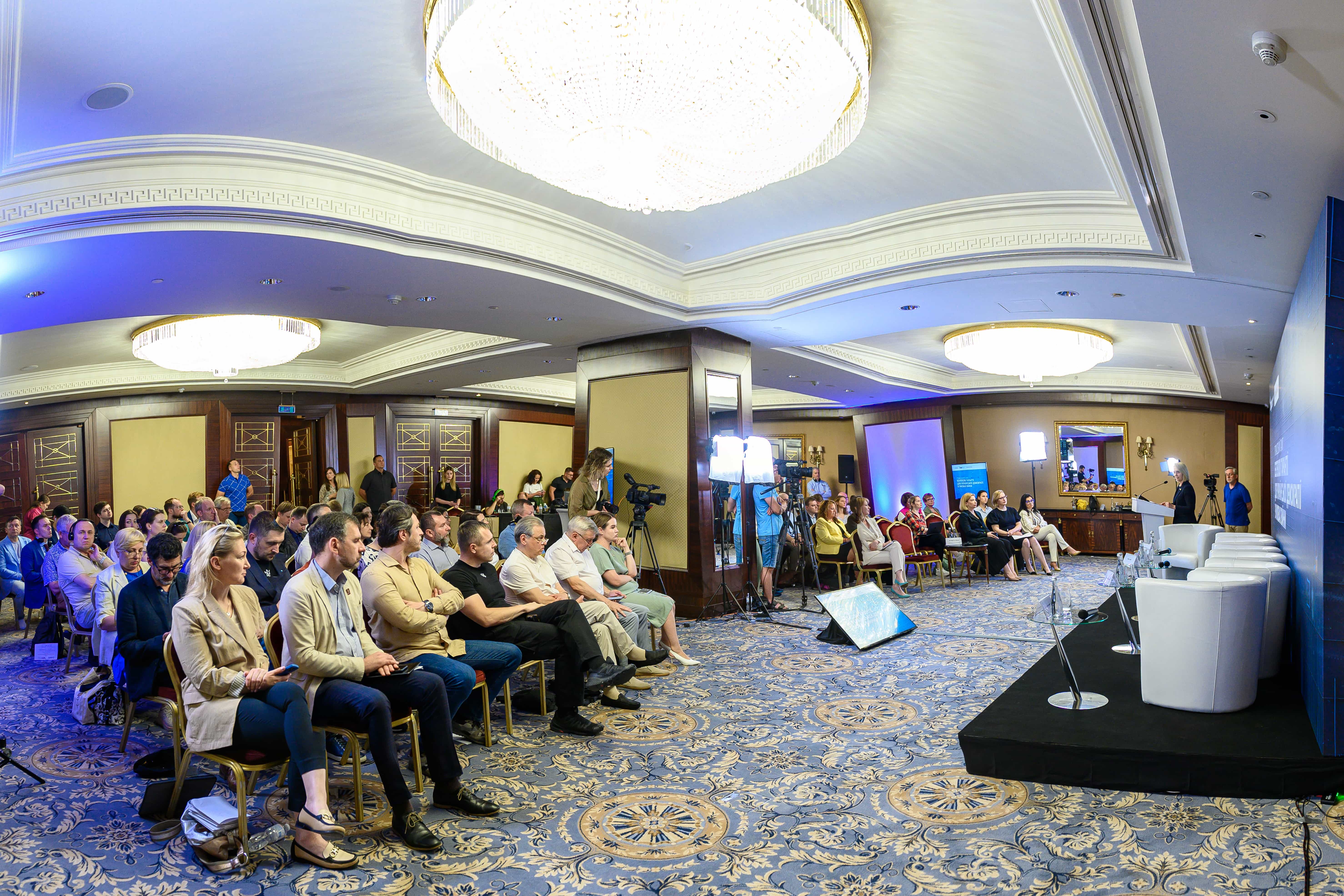On June 27, the first civil society summit “Security Guarantees for Ukrainian Democracy in Times of War” was organized by Civil Network OPORA in Kyiv. It was designed to become a professional platform for high-level political dialogue about the future of Ukrainian democracy in war conditions and effective means for victory.
The event consisted of several parts: a presentation of OPORA's research on Ukraine's bilateral security treaties with partner countries, a speech by US Ambassador Bridget Brink, an open panel discussion with invited speakers from the government and various fields of civil society, and a closed discussion according to Chatham House rules between all guests of the event.
.jpg)
.jpg)
.jpg)
.jpg)
.jpg)
The victory in the war depends on whether Ukraine is able to preserve and develop its democratic system. Bilateral security agreements, which Ukraine is currently signing, contain obligations of partner countries to support us on the battlefield. However, they also record Ukraine's obligations to instead preserve and develop democratic institutions: reform the administration and judicial system, fight corruption, ratify the Rome Statute, implement specific legislative changes that emphasize the desire for democracy, respect for human rights, and media freedom. Therefore, the timeliness and level of support given to us has the same weight as internal reforms.
The public discussion was participated by the Minister of Ministers of Ukraine Oleh Nemchinov and Deputy Minister of Defense of Ukraine, Nataliia Kalmykova, People’s Deputies Olena Shuliak (“Servant of the People”) and Serhii Rakhmanin (“Holos”), civil society representatives from the volunteers’ movement—director of the Come back Alive Foundation Taras Chmut and founder of the Serhii Prytula Charitable Foundation, as well as expert on European integration issues, director of the New Europe Center Alyona Getmanchuk, and director of advocacy in the energy sector of the International Center for Ukrainian Victory Victoria Voytsitska.
.jpg)
During her speech, chair of the board of OPORA, Olga Aivazovska, mentioned, “We had three revolutions, and all of them were for political rights, for statehood, for proper governance. None of these revolutions happened because the citizens demanded some kind of social benefits or special economic conditions. All the large-scale events, when the civil society showed its voice, demonstrated that this state definitely cannot have a government that, when it comes to power, would change this constant. And we are forced to live in a paradigm of war, when the rules are somewhat different than during the normal life of a peaceful country in Europe; however, our values are definitely unchanged. This is a society that, for more than 30 years, has been fighting for fair and free elections; for the change of power to take place in a legal, non-conflictual, civilized manner; for the voice of every citizen to be heard in the context of reforms and European choices.”
Diplomats, people's deputies, experts from international and national specialized organizations and analytical centers attended the event. Based on the results of the discussion during the closed part of the summit, OPORA’s analysts will prepare a document with the recommendations expressed by the participants.
.jpg)
.jpg)
.jpg)
.jpg)
.jpg)
This is the first event in a series of public summits of the Civil Network OPORA, which are going to take place every quarter and will focus on the most important issues of preserving and building the country's democratic system during the war and after its end.
The event became possible thanks to the support of the American people, provided through the United States Agency for International Development (USAID), and the informational support of the online media Ukrainska Pravda.
